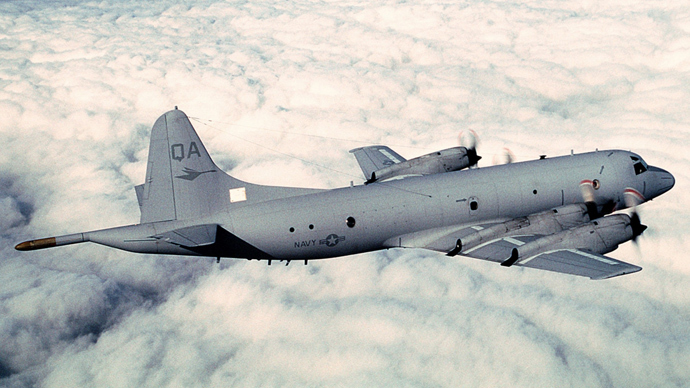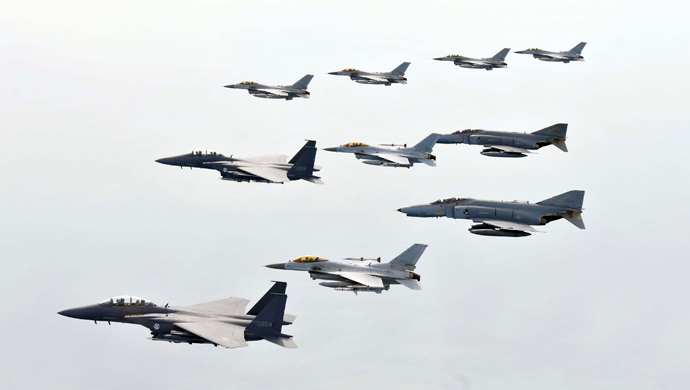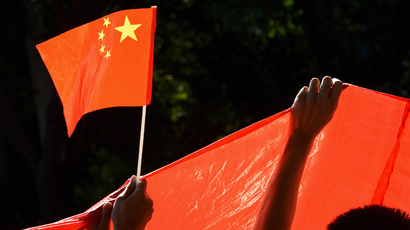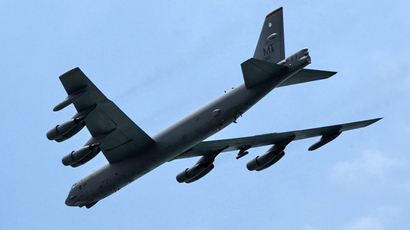Defiant flights: Japan, S. Korea military planes fly into China's air defense zone

Key American allies in East Asia, Japan and South Korea, have followed US lead by sending military aircraft to fly through disputed airspace, which China unilaterally included last week in its air defense zone.
Tokyo and Seoul sent its aircraft into the disputed areas following a similar flight on Monday by two unarmed American B-52 bombers. Neither country informed the Chinese of their plans beforehand, stressing their defiance of Beijing’s claim over the airspace.
China announced last week that it now considers new airspace as part of its Air Defense Identification Zone and demanded that aircraft passing it notify Chinese authorities of their flight plans and identify themselves as they pass. The claimed zones include those over islands, the sovereignty over which China contests other nations.
Japanese military said Tuesday that it sent surveillance missions over the islands in the South China Sea, which are called the Senkaku in Japan and the Diaoyu in China.
"They are carrying out surveillance activity as before in the East China Sea, including the zone," Chief Cabinet Secretary Yoshihide Suga told a regular news conference.
The area is routinely patrolled by Japanese naval ships and P-3C aircraft, Suga said.
"We are not going to change this [activity] out of consideration to China," he stressed.
Meanwhile South Korean forces flew over the Socotra Rock in the Yellow Sea, the northern part of the South China Sea. Both South Korea and China consider it to be within their respective exclusive economic zones and call it Ieodo and Suyan Rock respectively.
The Philippines, also engaged in a dispute with Beijing over islands, said it also was rejecting China's declaration.

The demonstrations of military defiance by the US and its allies so far did not draw any response from Beijing. Chinese military said it monitored the passage of the US bombers, but did not comment on whether they plan to take any action to enforce the new rules.
Some experts and policymakers believe the declaration of the defense zone was rather a symbolic gesture aimed at eroding Japanese and South Korean influence over the disputed territories rather than a practical move.
"China will not implement [the zone] fully because they do not have enough assets ... but they will try to scare smaller nations," told Reuters a source in the Japanese government, who spoke on the condition of anonymity because he was not authorized to discuss the issue with the media.
While choosing to ignore China’s claims in practice, its rivals are not hesitating to voice their displeasure on diplomatic level. On Thursday, a resolution approved by PM Abe’s party demanded that China rescinded the new defense zone, calling the move "unreasonable expansionism." The panel however refrained from using the wording “pre-modern and imperialist,” as was initially suggested.
Beijing rejected on Thursday calls from Tokyo and Seoul to rectify the zone. It also accused Japan of using double standards over the issue, pointing out that it implemented its own zone back in 1969.
"Japan consistently blames others and smears the name of other countries but never examines its own conduct," China's Defense Ministry spokesman, Yang Yujun, said in a statement posted on the ministry's website.
"If they want it revoked, then we would ask that Japan first revoke its own air defense identification zone and China will reconsider it after 44 years," Yang added.
The conflict gives a chance for the US to reiterate its ties with its Asian allies. In a telephone call on Wednesday, Defense Secretary Chuck Hagel told his Japanese counterpart Itsunori Onodera that the defense pact covered the disputed islands. He also commended Japan for "for exercising appropriate restraint," a Pentagon spokesman said.














